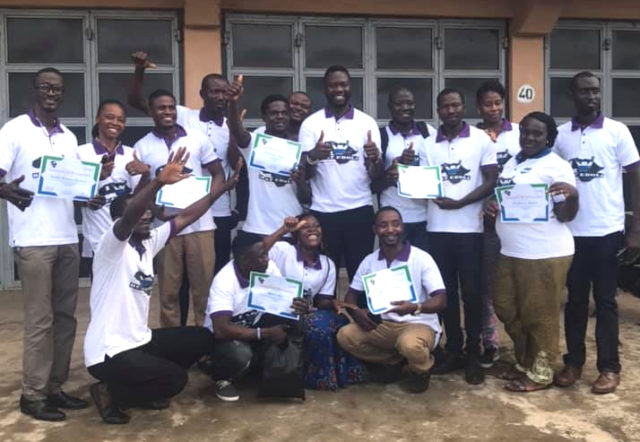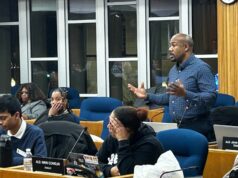Since August 2018, more than 1,500 people have died in an outbreak of Ebola in the Democratic Republic of Congo (DRC), the country’s health ministry said on Monday.
Wherever Ebola strikes, it does come back again, says Dr. Alhaji N’jai, a scientist at UW-Madison, a native of Sierra Leone, and the founder of Project 1808, Inc. With that in mind, and with an Ebola epidemic in Sierra Leone’s recent past, last week Alhaji’s Project 1808 successfully funded disease preparedness and paramedics training and certification of 25 Ebola Virus Disease (EVD) survivors to become front line responders in the event of another Ebola outbreak.
“The reason why our exercises these past three days has gotten national attention is because it has coincided with the Center for Disease and Control in the U.S. running a simulation exercise this week,” N’Jai tells Madison365 in an interview from Sierra Leone over Facebook Messenger. “The simulation basically made a scenario where there is a resurgence of Ebola virus.
“So, everybody in the country is on high alert. I’ve actually been bombarded by people from all over the place who want to talk about it,” N’Jai adds. “I’m at a popular radio station studio right now as I speak to you and they all want to know about Ebola. Of course, now with the issues in Congo and Uganda, there is heightened tension that the Ebola virus will come back. Anywhere it hits, it has a tendency to come back.”
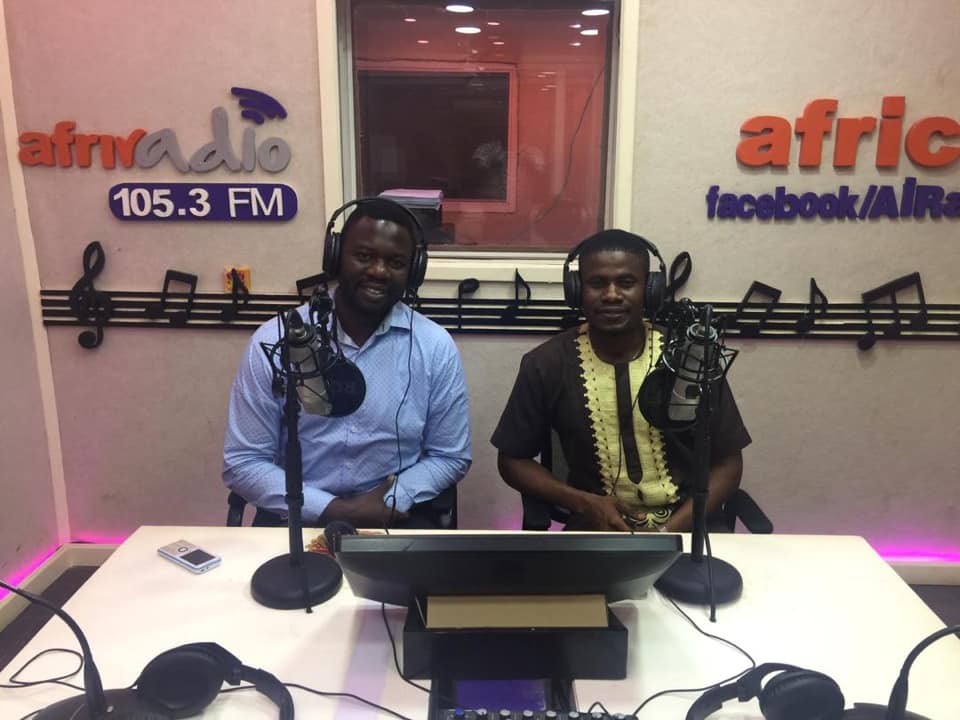
The recent outbreak in the Congo is the largest Ebola outbreak ever in that country and the second-largest on record. The outbreak is spreading to neighboring Uganda where the number of people there who may have been exposed to carriers of the Ebola virus has expanded significantly.
“What we’re learning in the Congo is that they are unable to control it,” N’jai says. “So, we are trying here to build our community awareness and then build the engagement and understanding by doing these training and exercises of survivors and we are going to extend it to community members so that in the likelihood of something happening, we will have less and less of the issues than we’ve seen in the Congo.
“We’re doing this as a pre-emptive exercise in making sure that the Ebola survivors, who are mainly immune because they have antibodies against the virus, can be front-line responders,” he adds.
The overall arching goal of Project1808 initiatives is to renew or revive the spirit of optimism, progress, hope, innovativeness, and leadership that existed among communities in Sierra Leone. Project 1808 works primarily in N’jai’s hometown community of Kabala, which is located in the Koinadugu District in the Northern Province of Sierra Leone.
Sierra Leone experienced the worst Ebola outbreak from 2014 to 2016, which killed thousands of Sierra Leoneans including health workers. Project 1808 has been working with Ebola survivors in Sierra Leone since 2014.
“In 2015-2016, we started them off with a livelihood skills development center for survival. Many of them lost everything during the Ebola outbreak,” N’jai says.
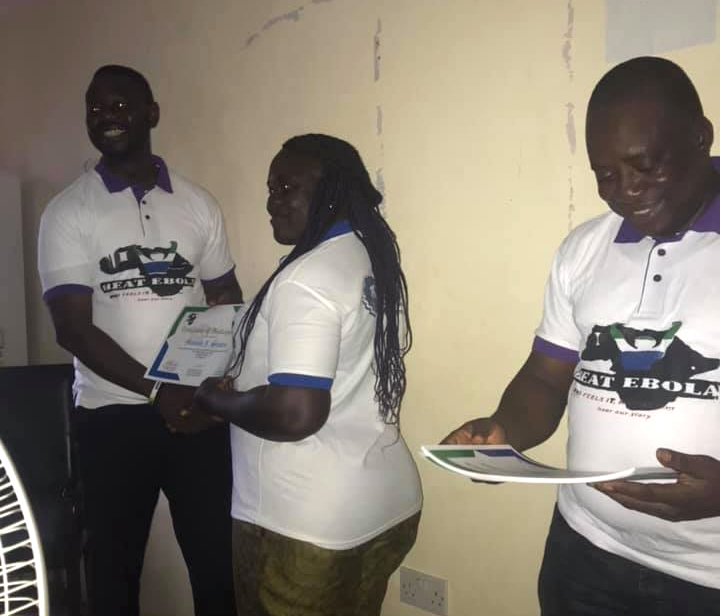
This latest support builds on Project 1808 training and certification of over 100 Ebola survivors in tailoring, computing, driving, and catering.
“We have a very poor public health system here,” N’jai says. “We are trying as hard as possible to make sure that people are trained and that we’ve built community knowledge and raised capacity on the potential that Ebola can come back. We need to be on the high alert about it.”
Sierra Leone is a country that has been devastated by civil war, poverty, and Ebola outbreak.
“Ebola is deadly to humans because it basically attacks our immune system and takes it over and it basically paralyzes our body and we’re unable to mount any immune challenge to it,” N’jai says. “It has a high tendency to kill – it can be very, very deadly.
“It’s usually transmitted person to person through bodily fluids, saliva, or blood or contact with the sweat of infected people,” he adds. “It can also be transmitted from animal to human.”
The Ebola transmissions have stopped in the country but the people in the country are still suffering.
“In the post-Ebola infections, people are still having health issues,” N’jai says. “Many of them are having complications with blindness or neurological problems. Some are having sexual reproductive issues. We are seeing many complications of health problems.
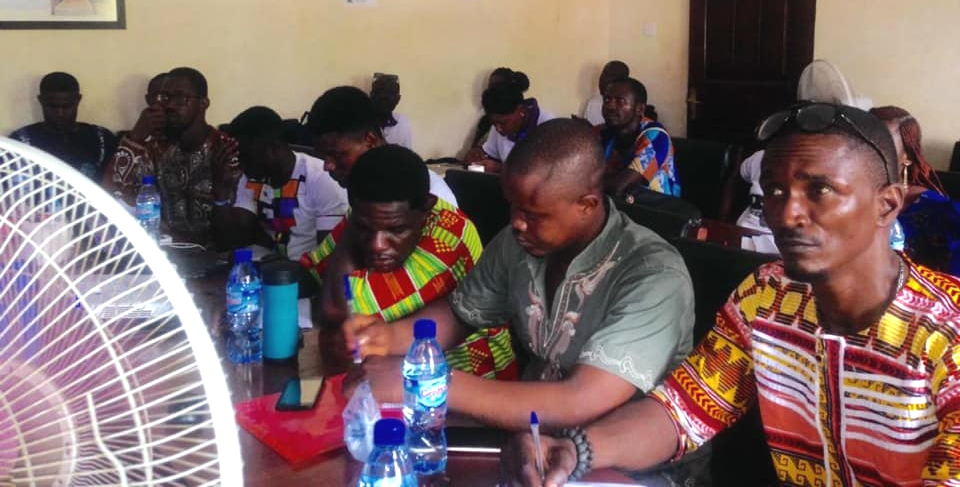
“Then, you have the economic side. Many of them lost everything. Some were the only surviving member of their family,” he continues. “We have women who are trying to raise their children and find work but everybody is now dead around them. Women are finding themselves in need of getting some skills to get a job.”
There are so many challenges right now, but N’jai says he is proud of the effort they’ve made to continually provide marginalized groups with the tools they need for empowerment. The level of the mistrust of the citizens and the community, shape how deadly Ebola can be. That’s what makes this training so important, too.
“This training is really making an important virtue out of all of this thing that has caused so much despair. The virtue is in the sense that the survivors have immunity against the Ebola virus,” N’Jai says. “We are giving them all of this training so that they can become sort-of ‘Ebola cops’ and can be the first-line responder and help the medical teams.
“In places like this where we have fewer resources, sometimes the hospitals don’t even have enough gloves and things for disinfection things,” he adds. “if you have Ebola survivors who have infection immunity and we can train them very well to help sick people, then that can actually cut down on infections to other people and can help us save lives.”

























